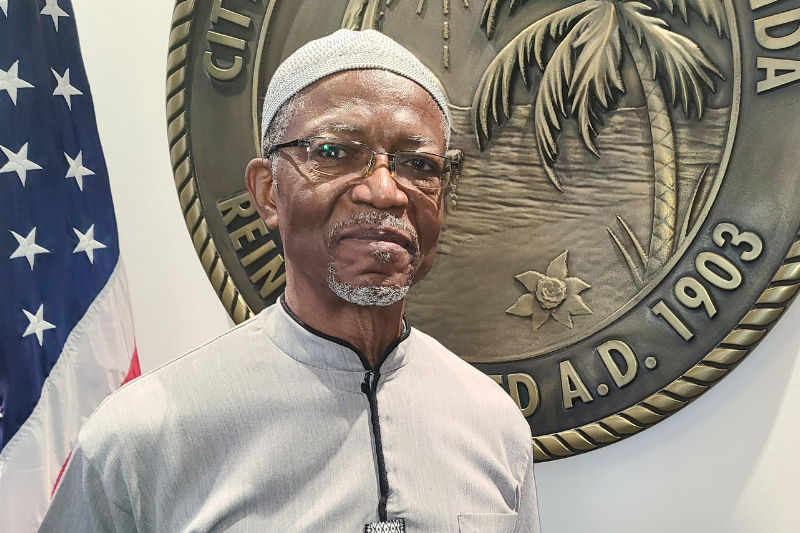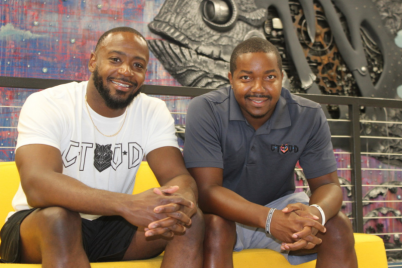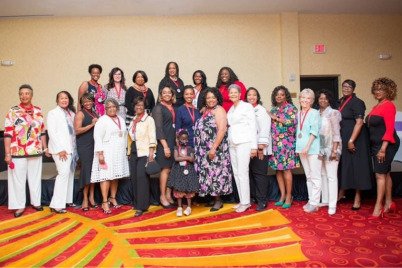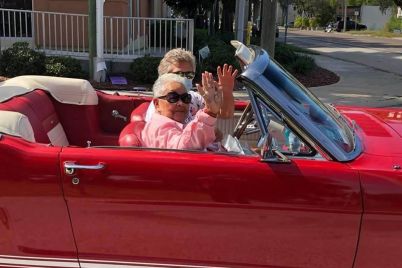Imam Askia Muhammad Aquil talks about the collective power African Americans possess.
BY MARK PARKER, Staff Writer
ST. PETERSBURG — The night before he was assassinated, Rev. Dr. Martin Luther King, Jr. gave what became known as his “mountain top” speech in which he said, “individually we are poor,” but that collectively African Americans are richer than all but nine nations in the world.
Imam Askia Muhammad Aquil and the Collective Empowerment Group of Tampa Bay (CEGTBA) take that principle to heart and look to achieve economic power and community wealth by “buying, building, and banking collectively.”
About 25 years ago, a group of Black preachers in Maryland was commiserating over the struggles to receive funding to finance projects. Aquil said redlining and systemic racism prevented them from having the same loan and finance opportunities as their white counterparts. They realized that if they united and worked together to leverage their collective strength, then vendors and bankers “would be chasing after us rather than us chasing after them.”
The Collective Banking Group was then founded and based in the Washington, D.C. area. It evolved into a national organization, and in 2010 became known as the Collective Empowerment Group (CEG), reflecting an increased focus on individual and corporate financial autonomy, responsibility, and control. An emphasis is placed on building relationships and aligning resources.
“That’s the strategy behind it,” explained Aquil. “To have faith leaders to agree to work together to collaborate with each other and agree on a common agenda and a common strategy for uplifting our community. The things we couldn’t do on our own.”
He has devoted his life to activism, social reform, and community building, and in 2010 he felt something was missing. He was attending a real estate development class through the University of South Florida and asked the instructor if there was a model in the country where faith leaders of all denominations were working together to achieve broad and common interests, improving conditions in a “real and material way.”
Producing community wealth was also key, as Aquil knows there are many examples of individuals who have done well, “but as a whole, the systemic problems in our community have persisted over many years – over generations.”
The instructor put him in touch with Rev. Joaquin Willis, a pastor in the Liberty City area of Miami. After talking on the phone for some time, they eventually arranged for Willis to come to the Bay area, and during that meeting, the Tampa Bay chapter was created. Aquil is now the chair of the board of directors.
Aquil said the South Florida chapter is a model for success after empowering the community there for more than 15 years. The Tampa Bay chapter is only about five years old and is “looking to pursue a course that is similar to what they’re doing and consistent with the national model.”
During this election year, Aquil said that more promises are being made to the community that development and progress will be shared, and as citizens and taxpayers, they should expect their piece of the pie, but that should not be the sole focus.
“That’s all well and good, but there are things that we can and should and must do for ourselves. That requires that we organize, leverage our strengths, and figure out how we can overcome weaknesses ourselves,” asserted Aquil. “The biggest of which is disunity and division.”
He added that there are real opportunities to come together and help people with housing and healthcare issues. He said most ministries have a benevolent fund to help people pay mortgages, rent, utilities, and hospital bills, but they are on small scales because they are doing it individually.
“These are things that we could do collectively and should and must be done collectively,” he said.
Aquil said that people shouldn’t wait for politicians to come to them around election time; organizations should proactively tell them what they want and need. Their support for that politician is then dependent on the politician’s support for their mission.
He points out that making a difference through the ballot box can also be better achieved when people band together collectively.
“The key is being able to put people in a position beforehand, so they know they will be held accountable,” stated Aquil. “And that they can’t just come in and make empty promises.”
Aquil said that CEGTBA had been hit hard by the pandemic as its momentum and priorities were disrupted. It is currently in a rebuilding phase; it is crucial to Aquil that board members and supporters clearly understand what the CEGTBA model is about and how it is different from other organizations. There is a distinct approach and advantage that he thinks they can succeed in leveraging.
A priority CEGTBA “will attack and continue attacking” is expanding housing opportunities and increasing homeownership rates. Aquil said this is consistent with his professional background, and there is an immense need for affordable, decent, and safe housing. Not only is the need at an all-time high in the area, but he added that homeownership is the primary path to wealth building.
“For the average individual or average family that succeeds in building any degree of wealth, it’s typically tied to whether or not they own a home,” averred Aquil.
CEGTBA’s immediate goals for moving forward is rebuilding the momentum that was lost because of the pandemic and engaging in strategic planning. The strategic planning cannot be done haphazardly, as this is not just a neighborhood association or even confined to one city – the collective covers the entire Tampa Bay area.
He said the plan must capture the broader vision from the standpoint of principles, vision, and mission, and that is “one of the things we’re embarking upon as we speak.” The next step is expansion, both on the board and rebuilding the membership base.
In parting, Aquil recited a line from a song he first heard as a kid growing up in Methodist Town and attending Bethel AME, a line that resonates with him today and will perhaps resonate with others: “If I help someone along the way, then my living is not in vain.”
For more information, please call 727-235-1416.
To reach Mark Parker, email mparker@theweeklychallenger.com











